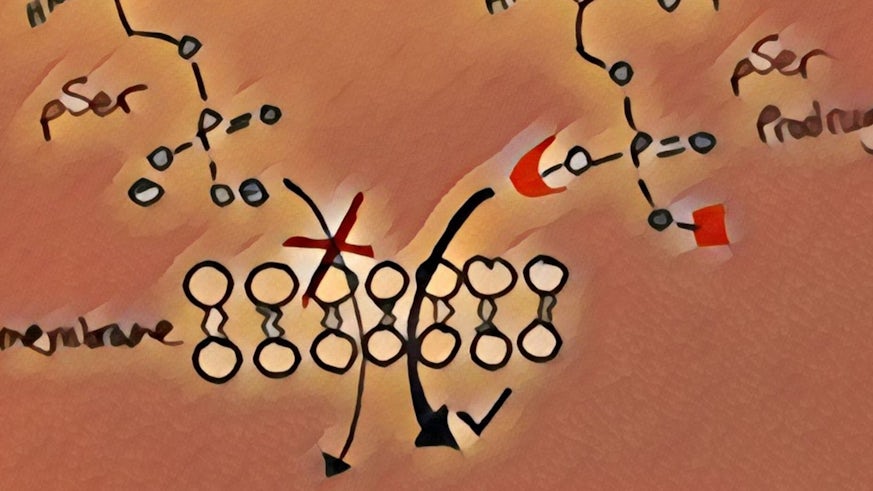The resurrection of phospho-amino acid containing drugs
6 December 2019

Researchers at Cardiff University have developed a new approach that facilitates the discovery of drugs that contain phospho-amino acids.
The assembly of proteins to form complexes has been known for decades to play a critical role in the development and progression of many diseases including cancer. Although the assembly of these complexes is triggered and held together in different forms, among the key signals that allows protein complexes to be held together is the modification of certain amino acids via phosphorylation. This phenomenon yields phospho-amino acids, which dock into pockets of the partner proteins, in the form of a lock and key, to mediate important signalling events inside cells.
Efforts into the specific targeting of these protein complexes held by a natural phospho-amino acid termed phospho-serine has been limited because of the difficulty faced by molecules that contain phospho-serine to enter cells. To address this, Dr. Mehellou and his team have developed a new strategy that facilitates the entry of phospho-serine into cells. This approach was applied to molecules that could eradicate cancer cells and his work showed that this new strategy improved their anti-cancer activity.
Dr. Mehellou, who led the study, stated that “our new approach for delivering molecules that contain phospho-serine into cells has addressed a stern challenge in discovering new medicines. Indeed, our new approach will open up the area of targeting proteins complexes in cells, which until recently were viewed as very difficult to target, with exquisite specificity. Ultimately, this will lead to the discovery of new medicines that could treat different types of cancer.”
The findings of this study could be accessed here.